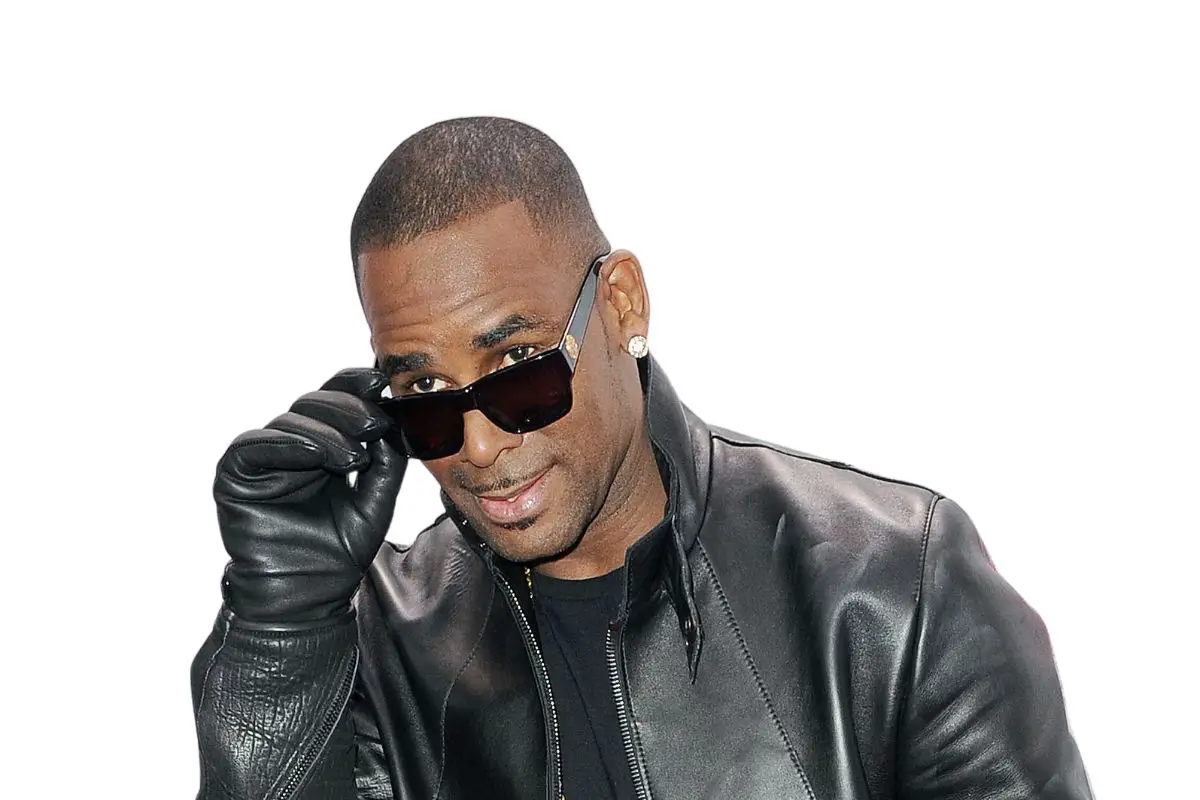When we talk about R Kelly, the conversation often revolves around his controversial past and the allegations that have haunted his career. But have you ever wondered what happens to the victims involved in his legal battles? Do R Kelly's victims get royalties from his music? This is a question that has sparked curiosity among fans and critics alike. In this article, we will dive deep into the complexities of the music industry and explore the financial implications for those affected by his actions.
It’s no secret that R Kelly has been one of the most polarizing figures in the music world. His talent as a singer and songwriter is undeniable, but his reputation has been marred by numerous allegations. As we unravel the layers of this story, we’ll uncover the truth about whether the victims of R Kelly's actions are entitled to any financial benefits from his music.
This article aims to shed light on the legal and financial aspects surrounding R Kelly's music royalties. We’ll break down the intricacies of the music industry, explore the rights of victims, and provide insights into the potential outcomes for those who have been affected. Let’s get started!
Read also:Missouri Highway Crash Report A Comprehensive Guide To Understanding Road Safety
Who Is R Kelly? A Brief Biography
Before we dive into the specifics of royalties and victims, let’s take a moment to understand who R Kelly is. Born Robert Sylvester Kelly on January 8, 1967, in Chicago, Illinois, R Kelly rose to fame in the early 1990s with his soulful voice and heartfelt lyrics. His career took off with hits like “Bump n’ Grind,” “I Believe I Can Fly,” and “Ignition (Remix).”
R Kelly’s journey in the music industry has been nothing short of remarkable. However, his personal life has been plagued with controversy. Over the years, he has faced numerous allegations of sexual misconduct, abuse, and exploitation. These allegations have not only tarnished his image but have also raised questions about the ethics of supporting his music.
R Kelly's Musical Legacy
Despite the controversies, R Kelly’s impact on the music industry cannot be denied. His unique style and genre-blending approach have influenced countless artists. His contributions to R&B and pop music have left a lasting legacy that continues to inspire new generations of musicians.
However, the question remains: What happens to the victims in the wake of his controversies? Let’s explore this further in the next section.
Do R Kelly's Victims Get Royalties?
The short answer is no, R Kelly’s victims do not automatically receive royalties from his music. Royalties are typically paid to the creators of the music, which includes songwriters, performers, and producers. In R Kelly’s case, he owns the rights to many of his songs, meaning he is the primary beneficiary of the royalties generated from his music.
However, there are legal avenues that victims can pursue to seek compensation. Through civil lawsuits and settlements, victims may be able to obtain financial reparations. These settlements can sometimes include agreements that involve a portion of future earnings from R Kelly’s music.
Read also:Uncovering The Truth Arrest In Beaufort Sc Ndash What You Need To Know
Understanding Music Royalties
To fully grasp the situation, it’s essential to understand how music royalties work. There are several types of royalties in the music industry:
- Performance Royalties: Paid when a song is played on radio, TV, or in public venues.
- Mechanical Royalties: Generated from the sale of physical and digital copies of a song.
- Synchronization Royalties: Earned when a song is used in films, commercials, or other media.
These royalties are distributed among the songwriters, publishers, and performers. In R Kelly’s case, he often writes and produces his own music, giving him significant control over the royalties.
Legal Battles and Financial Implications
R Kelly’s legal troubles have had a profound impact on his financial situation. Over the years, he has faced multiple lawsuits and criminal charges, leading to significant legal fees and settlements. These financial burdens have affected his ability to generate income from his music.
In some cases, victims have successfully secured settlements that include a portion of R Kelly’s future earnings. However, these settlements are typically private agreements and the details are not always disclosed to the public.
Recent Developments
In recent years, there have been notable developments in R Kelly’s legal battles. In 2021, he was convicted on multiple counts of racketeering and sex trafficking. This conviction has further complicated his financial situation and raised questions about the future of his music career.
As the legal proceedings continue, the financial implications for both R Kelly and his victims remain uncertain. The outcome of these cases will play a crucial role in determining how royalties and other financial assets are distributed.
Can Victims Pursue Royalties Through Legal Means?
While victims do not automatically receive royalties, they can pursue financial compensation through legal means. Civil lawsuits and settlements offer a pathway for victims to seek reparations. These legal actions can sometimes include agreements that involve a portion of future royalties.
However, pursuing legal action can be a lengthy and complex process. Victims must navigate the intricacies of the legal system and often face significant challenges in securing settlements. Despite these obstacles, many victims have successfully obtained financial compensation through legal means.
Factors Influencing Settlements
Several factors can influence the outcome of settlements involving R Kelly’s music royalties:
- Evidence: The strength of evidence supporting the victim’s claims plays a crucial role in determining the settlement amount.
- Legal Representation: Having experienced legal counsel can significantly improve the chances of securing a favorable settlement.
- Public Opinion: The court of public opinion can sometimes influence the outcome of legal proceedings, especially in high-profile cases like R Kelly’s.
These factors, among others, can impact the financial compensation victims may receive from R Kelly’s music royalties.
The Role of Music Publishers and Labels
Music publishers and labels also play a significant role in the distribution of royalties. In R Kelly’s case, his music has been distributed by several major labels, including Sony Music and Universal Music Group. These entities are responsible for managing the royalties and ensuring they are distributed according to the agreements in place.
However, the allegations against R Kelly have raised questions about the ethical responsibilities of these companies. Some critics argue that music publishers and labels should take a more active role in addressing the concerns of victims and ensuring they receive fair compensation.
Industry Response to R Kelly's Controversies
The music industry has responded to R Kelly’s controversies in various ways. Some platforms have removed his music from their catalogs, while others have continued to distribute his songs. This divide reflects the broader debate about the ethics of supporting artists with controversial pasts.
As the industry grapples with these issues, there is growing pressure to implement more transparent and ethical practices in the distribution of royalties. This includes ensuring that victims of artist misconduct are adequately compensated for their suffering.
Public Perception and Ethical Considerations
Public perception plays a significant role in shaping the response to R Kelly’s controversies. Many fans and critics have expressed outrage over the allegations and called for accountability. This growing awareness has led to increased scrutiny of the music industry’s practices and the treatment of victims.
Ethical considerations are at the forefront of this discussion. As consumers, we must weigh the implications of supporting artists with controversial pasts. By demanding transparency and accountability, we can help create a more equitable and just music industry.
What Can Fans Do?
Fans have the power to influence change in the music industry. By supporting artists who prioritize ethical practices and holding problematic artists accountable, we can contribute to a more equitable industry. Some actions fans can take include:
- Supporting artists who advocate for social justice and equality.
- Engaging in conversations about the ethics of supporting controversial artists.
- Donating to organizations that support victims of abuse and exploitation.
These actions, while small, can collectively make a significant impact on the industry and the lives of those affected by artist misconduct.
Conclusion: Moving Forward
In conclusion, the question of whether R Kelly’s victims get royalties is complex and multifaceted. While victims do not automatically receive royalties from his music, they can pursue financial compensation through legal means. The music industry’s response to these controversies highlights the need for greater transparency and accountability in the distribution of royalties.
As we move forward, it’s essential to continue the conversation about ethics in the music industry. By demanding transparency and supporting artists who prioritize fairness and justice, we can help create a more equitable industry for all. We encourage you to share your thoughts in the comments section and explore other articles on our site for more insights into the world of music and beyond.


